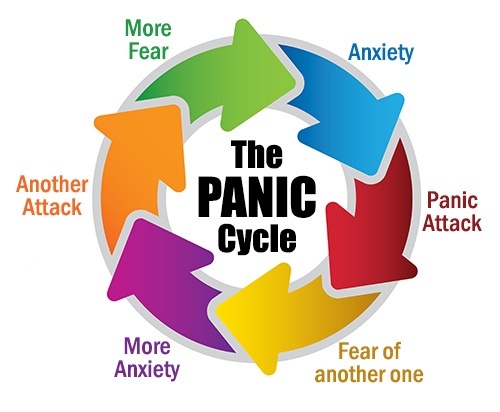


Anxiety UK
Anxiety is a type of fear usually associated with the thought of a threat or something going wrong in the future, but can also arise from something happening right now.
- In 2013, there were 8.2 million cases of anxiety in the UK.1
- In UK women are almost twice as likely to be diagnosed with anxiety disorders as men.2
- The one-week prevalence of generalised anxiety in UK is 6.6%
The Most Common Problems
- Mixed anxiety & depression is the most common mental disorder in Britain, with 7.8% of people meeting criteria for diagnosis.
4-10% of people in England will experience depression in their lifetime. - Common mental health problems such as depression and anxiety are distributed according to a gradient of economic disadvantage across society. The poorer and more disadvantaged are disproportionately affected by common mental health problems and their adverse consequences.
- Mixed anxiety and depression has been estimated to cause one fifth of days lost from work in Britain.
One adult in six had a common mental disordeR
Youth
20% of adolescents may experience a mental health problem in any given year.
50% of mental health problems are established by age 14 and 75% by age 24.
10% of children and young people (aged 5-16 years) have a clinically diagnosable mental problem, yet 70% of children and adolescents who experience mental health problems have not had appropriate interventions at a sufficiently early age.

Panic attacks - Anxiety
There are many fears and misunderstandings about the use of hypnosis and hypnotherapy, and the myths and mystery that surround it are totally undeserved. Hopefully this page will help to reassure you that what happens is very normal, certainly non-magical, with generally predictable results.
"There is no such thing as a 'hypnotised feeling"
Hypnosis is usually induced by the use of the therapist's voice, though you are unlikely to actually feel hypnotised. There is no such thing as a 'hypnotised feeling', though many people find their senses to be far more alert than usual – you will certainly not 'lose control' at any time, nor can you be manipulated in anyway.
There is no form of unconsciousness and nobody can be made to do anything that they do not want to do; a person in hypnosis is aware of everything happening around them, aware of themselves and their therapist, and will retain a full and accurate memory of everything afterwards.
"Hypnosis, a totally natural phenomenon"
Hypnosis, a totally natural phenomenon, is simply a very comfortable and relaxed state during which it is quite easy to converse sensibly with the therapist. Almost anyone can enter the hypnotic state easily, with the exceptions of the truly mentally subnormal, very young children, and anybody under the influence of hard drugs or very large quantities of alcohol. It is inconceivable that any harm could befall anybody in this pleasant state.
Nobody can be hypnotised against their will. Hypnosis is not about control by the hypnotist. It is about working together so that the client can be empowered to create change in his or her life. Nobody can be forced to do anything against their will. The 'control' misconception appears to originate from stage hypnosis which funnily enough also involves people doing exactly what they want to be doing.
This is a reliable and safe therapeutic technique which is centuries old and is recognised by many branches of orthodox medicine as a valuable alternative to drugs, to accelerate healing, and to help combat pain.
Whilst not a panacea for all ills, hypnotherapy can be an effective treatment method for a great many problems where psychological factors are involved.
Problem displaying Facebook posts. Backup cache in use.
Click to show error


